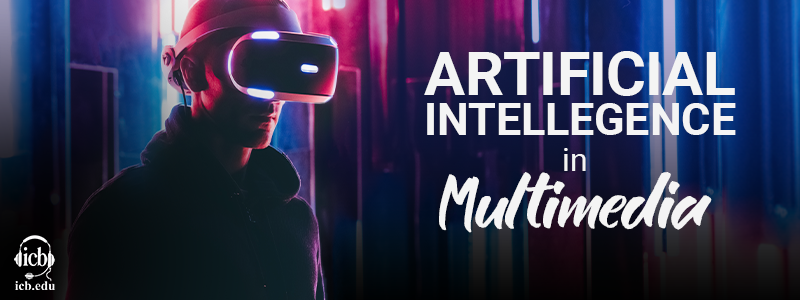
The Transformative Role of Artificial Intelligence in Multimedia
Artificial Intelligence (AI) has emerged as a groundbreaking technology that is revolutionizing various industries. One field where AI is making a significant impact is multimedia. From content creation to personalized recommendations, AI is enhancing the way we create, consume, and interact with multimedia content. Let’s explore the role of AI in multimedia and its transformative effects on the industry.
Content Creation
AI is reshaping the landscape of content creation in multimedia. With AI-powered tools, creators can automate repetitive tasks, streamline workflows, and unlock new possibilities for creativity. For instance, AI algorithms can analyze vast amounts of data, identify patterns, and generate engaging visuals, music, and even entire videos. This technology enables artists to explore novel concepts, experiment with different styles, and push the boundaries of their creativity.
Additionally, AI-powered tools can facilitate real-time video editing, making the process faster and more efficient. Automated video editing algorithms can analyze footage, recognize scenes, and apply appropriate edits, saving creators significant time and effort. These advancements in AI-driven content creation empower multimedia professionals with powerful tools to bring their ideas to life.
Content Recommendation and Personalization
One of the most notable contributions of AI to multimedia is in the area of content recommendation and personalization. AI algorithms analyze user data, such as browsing history, preferences, and behavior, to deliver personalized recommendations tailored to individual tastes. This technology powers recommendation engines used by streaming platforms, music services, and social media networks (such as TikTok).
By using AI, these platforms can provide users with content suggestions that align with their interests, leading to a more engaging and personalized multimedia experience. Moreover, AI algorithms continuously learn and adapt based on user feedback, refining the recommendations over time and further enhancing the user experience.
Enhanced User Interfaces.
AI is also enhancing user interfaces in multimedia applications, making them more intuitive and interactive. Natural Language Processing (NLP) techniques enable voice and text-based commands, allowing users to control multimedia devices and applications with ease. Voice assistants like Siri, Alexa, and Google Assistant have become common, helping users to search for content, play music, and control smart home devices with ease.
Computer vision algorithms, another application of AI, are transforming the way we interact with images and videos. Image recognition technology allows users to search for visual content using keywords or by uploading images. This opens up new possibilities for content discovery and simplifies the process of finding specific multimedia assets.
AI in Virtual and Augmented Reality
Virtual Reality (VR) and Augmented Reality (AR) are gaining momentum in multimedia, and AI plays a vital role in enhancing these technologies. AI algorithms enable real-time tracking and recognition of objects and gestures, making immersive VR and AR experiences more realistic and interactive. This combination of AI and VR/AR has vast potential in gaming, entertainment, education, and various other sectors.
Through AI-driven automation and personalization, multimedia professionals can streamline their workflows, reach broader audiences, and deliver more engaging content. As AI continues to evolve, we can expect further advancements and innovations that will shape the future of multimedia, enhancing our digital experiences in ways we couldn’t have imagined before.
Check out ICB
If you’re interested in learning more about using AI as a tool to enhance your multimedia skills, the International College of Broadcasting (ICB) can help prepare you for an exciting future with our innovative Multimedia Production and Broadcasting program. To learn more, contact us or give us a call at 855-896-3733.

